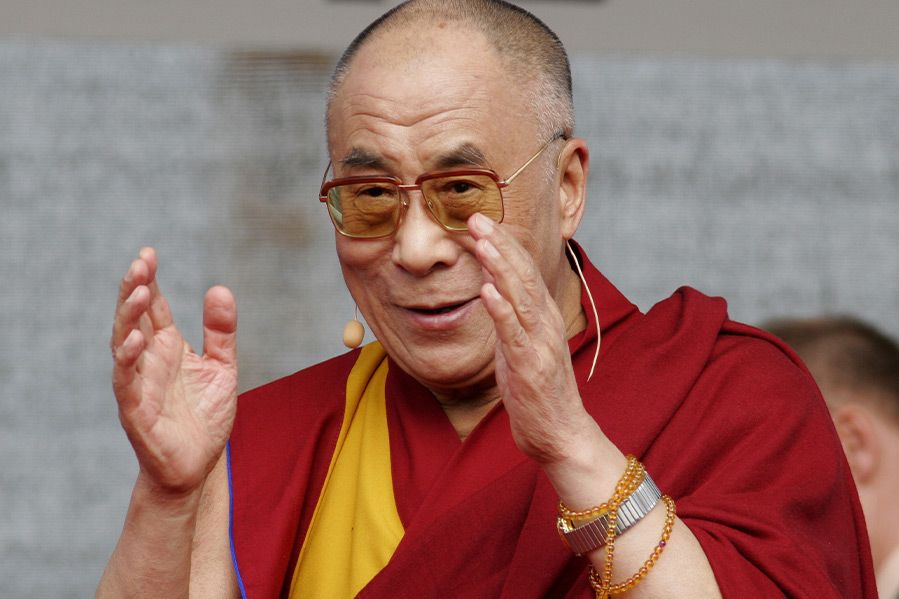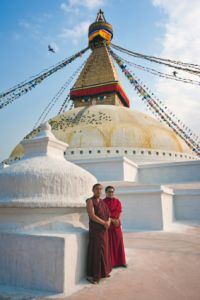
The Dalai Lama raised more than a few eyebrows recently when he said that "religion is no longer adequate" for resolving ethical dilemmas in the modern world. The words have surprised some, given the fact that the Dalai Lama is a major religious leader, while others have barely batted a lash, already viewing the man as a voice of calm moderation in a world plagued with religious strife. Either way, it is possible to draw certain parallels between the Dalai Lama's teachings and those of the Universal Life Church Monastery.
Tenzin Gyatso, the 14th Dalai Lama of Tibet, posted the comment on his Facebook page on Monday, 10 September. According to Dominique Mosbergen of The Huffington Post, the religious leader was quoting a passage from a book he published last year called Beyond Religion: Ethics for a Whole World_._ In his post, he writes that "[a]ll the world's major religions, with their emphasis on love, compassion, patience, tolerance, and forgiveness can and do promote inner values," but added that "the reality of today is that grounding ethics in religion is no longer adequate," and that "the time has come to find a way of thinking about spirituality and ethics beyond religion altogether."
To illustrate his point, the Dalai Lama uses a simile comparing tea with water. Louis Sahagun elucidates on the simile's meaning in a Los Angeles Times book review of Beyond Religion: "The difference between ethics and religion is like the difference between water and tea," he says, and "[e]thics without religious content is water, a critical requirement for health and survival," while "ethics grounded in religion is tea, a nutritious and aromatic blend of water, tea leaves, spices, sugar and, in Tibet, a pinch of salt." He quotes the monk as saying, "however the tea is prepared, the primary ingredient is always water," and that "while we can live without tea, we can't live without water. Likewise, we are born free of religion, but we are not born free of the need for compassion." The comparison will strike a chord of truth in many interfaith ordained ministers: what the Dalai Lama suggests is that secular ethics apply indiscriminately to the needs of all, whereas individual religions cater to our personal tastes, often discriminatorily.

Some have questioned the intent behind the Dalai Lama's remarks, speculating about his commitment to traditional religion. In a blog post called "Does the Dalai Lama Want to End All Religion?" Christian Piatt asks whether the monk wants to spread the influence of Western Post-Christendom round the world, while George Dvorsky of i09 compares him to the famous atheist Sam Harris for his fascination with science and the similarity of his values to those of some atheists. As ULC pastors, though, we should be asking ourselves: what is wrong with melding spirituality and science? We should be able to ground our spiritual aspirations in scientific truth.
It is a false dilemma to say that one must choose spirituality, or science, but not both: the two are
not necessarily mutually exclusive. As the Dalai Lama makes clear, however, secular values such as compassion address the basic needs of all human beings; religions, in their specificity, address the tastes, desires, and fancies of the individual. If we really are "all children of the same universe," and if our aim is to serve all people, perhaps we do need to move beyond traditional religion toward a more complete and inclusive ethical framework.


0 comments